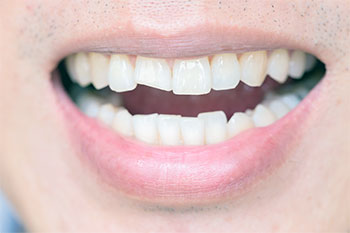
Learn how to reduce the risk of chipping or fracturing your teeth by following the recommendations below. You will also learn if you are at risk for chipping your teeth.
Wear a Sports Guard for Contact Sports
If you play any contact sports such as football, soccer or rugby, it is vital to wear a sports guard to protect your jaw and teeth. Sports guards absorb the force from a blow and lessen the effects on the teeth, preventing chips and fractures. There are two types of sports guards: professionally made and store-bought. Store-bought sports guards are recommended for children whose mouths are constantly changing and growing because they will need to be replaced more often. Professionally made sports guards are recommended in all other cases and by far, offer the most superior protection.
Wear a Night Guard if you Clench or Grind Your Teeth
If you clench or grind your teeth at night, it is essential to wear a nightguard. Nightguards protect your teeth from the excessive forces that can cause wear spots and chipping. Symptoms of clenching or grinding are headaches, neck aches, sore and stiff jaw. You may not be aware that you are clenching or grinding your teeth, but the evidence will appear physically on your teeth in the form of premature wearing. If you have any concerns you may be clenching or grinding your teeth, talk with your dentist or dental hygienist.
Don’t Use Your Teeth on Anything Hard
Try not to bite into or chew anything that is overly hard for your teeth, such as ice, which will increase the susceptibility to chips and fractures. Be careful when eating meat with a bone, to prevent accidentally biting the bone. Don’t use your teeth to open packages or to cut tape, as this may also lead to chips.
Treatment for a Chip
The procedure for fixing a chipped tooth depends on the size of the chip. For a small chip, the affected area can likely be filled with a bit of filling material to build it back up. Sometimes if the chip is tiny, the area can be sanded down to reduce rough edges and look more natural. If the chip is large, other options may need to be explored, such as dental crowns or dental veneers.
